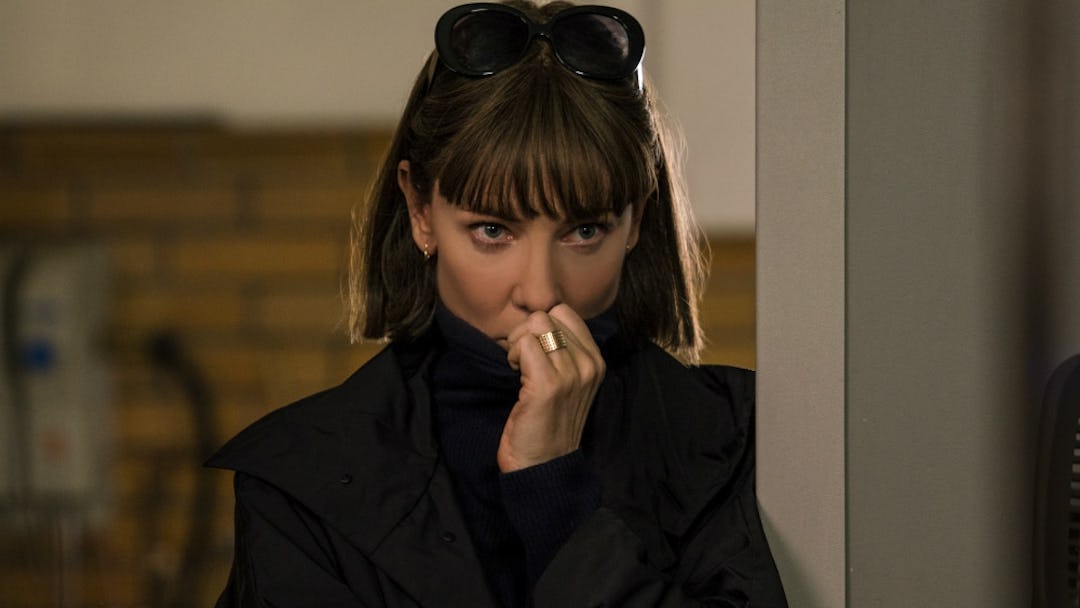Richard Linklater is a filmmaker who wears his heart on his sleeve, and that might be the key to understanding his filmography, which is about as erratic as one can imagine for a genuinely gifted director – when he’s on he’s untouchable, but when he’s off, he’s really off. His latest feature, Where’d You Go, Bernadette, is basically a miscalculation from end to end, full of bizarre narrative turns and inexplicable craft decisions. Yet, as with his earlier critical and commercial misfires, there’s never any question that Linklater is fully committed, and it’s hard to consider a movie “bad” that’s made with this much care. But it certainly doesn’t work, not in any meaningful way.
Cate Blanchett stars as Bernadette Fox, “one of architecture’s true enigmas” - a MacArthur Grant recipient with a playful style and dedication to renewable and local resources, a rising star who dropped out of the L.A. scene twenty years earlier after a devastating professional setback. She moved to Seattle with her husband Elgie (Billy Crudup), had a daughter (Emily Nelson), and basically gave in to her anxiety and depression; now she rarely leaves their big, shambling home, and spends most of her time worrying about an upcoming family vacation. “There’s gonna be a lot of people,” she notes. “And y’know, I don’t do good with a lot of people.”
Bernadette is based on the novel by Maria Semple, and Linklater and co-writers Holly Gent and Vince Palmo didn’t really lick the adaptation; they end up using a variety of devices to dump the story’s truckloads of exposition and backstory – intermingled confessions, biographical online videos, dictated emails – but the sheer volume of information becomes exhausting, and Linklater resorts to distracting camera movements in a failed attempt to create visual interest.
There’s a strange, stilted quality to his work here, which veers unpredictably from strained whimsy to labored set pieces to outright corn, and even when the material approaches something resembling emotional truth, the insights and confrontations are so stage-y and overwritten, they don’t connect. And mention must be made of Graham Reynolds’ cloying score, which plays as an attempt to spackle over the tonal shifts and emotional uncertainties, and only ends up underlining them, with forced jauntiness to assure us of the picture’s whimsiness, or piano plunkings to encourage us to feel sad.
Moments like that, of confessions and discoveries slathered in maudlin orchestration, serve as a reminder that when Linklater is adrift in material outside of his comfort zone, he resorts to a frustrating conventionality that basically torpedoes his specific, wonderful gifts. It’s no coincidence that Bernadette is at its best when it just puts its characters into rooms and lets them talk to each other (or, even better, listen to each other). But all the other stuff – the family melodrama of the first hour, the globe-trotting of the second, the subplot about Russian identity thieves (don’t ask) – finds Linklater trapped by the mechanics of a plot. And if you haven’t noticed by now, plot isn’t really his thing.
Linklater’s best films, with alarmingly few exceptions, are hangs. Slacker, Dazed and Confused, Everybody Wants Some!!!, Waking Life, Boyhood, the Before series, even School of Rock– these are not tightly plotted, narrative-driven efforts, but films about clearly-defined characters in a specific time and place, and when he’s firing on all cylinders, Linklater makes us feel as much an inhabitant of those spaces as his characters. This approach, this deference to mood over structure, is not incompatible with stories outside the Dazed/Before mold; his true crime movie, Bernie, transcends that genre’s dreary tropes with a sly sense of self-awareness and regional humor, while A Scanner Darkly paradoxically uses its loosey-goosey character beats to tighten the screws of Philip K. Dick’s paranoid plotting.
But more often than not, when Linklater tries to stretch his legs – whether it’s in a period crime movie (The Newton Boys), a broad comedy remake (Bad News Bears), a serious-minded, Traffic-style exposé (Fast Food Nation), or a straight-faced literary adaption (Bernadette and its predecessor, Last Flag Flying) – he ends up tripping over his own feet. His ambition is admirable, as is his never-say-die spirit; he’s clearly not capable of phoning it in. So consequently, the experience of watching Linklater when he’s off his game is like watching a square peg being pounded, pushes, and squeezed into a round hole where it just. Will. Not. Fit.
“Where’d You Go, Bernadette” is out Friday.
